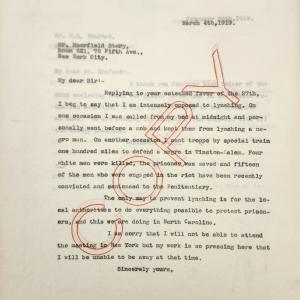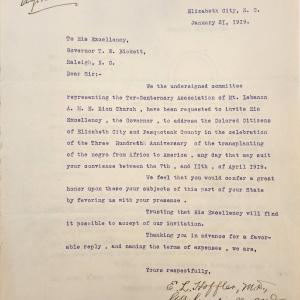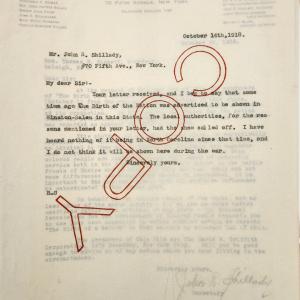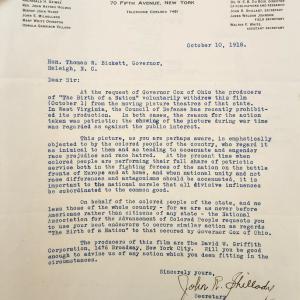- Transcription
March 13, 1918.
Mr. P. M. Estes,
General Counsel,
Nashville, Tenn.
Dear Sir:-
Your letter of the 7th instant to Governor Bickett has been by him referred to me. The remedies to sustain mob violence in North Carolina begin with the constitution of the State. The Governor, as commander-in-chief of the military forces of the State is authorized to call out such part of the military forces as may be necessary to quell riots, insurrections, or invasions. He is also authorized to use the military forces of the State in aid of civil authorities to enforce the laws of the State. We have also provisions in our statute law authorizing the sheriff of the county in which the prisoner is treated mob violence to remove him; to summon the local militia forces for his protection; and the Superintendent of the State Prison at Raleigh is authorized to receive for safe keeping any prisoner who may be thought to be in danger of mob violence. We have also statutory provisions directing the Solicitors of the State to investigate lynchings. The purpose of all these statutes is to restrain and discourage mob violence in order that the administration of laws may proceed in an orderly way. Of course, the Governor of the State has also the power to order a special term of the Superior Court, which court is a court of general, civil, and criminal jurisdiction in this state, to try persons indicted or charged with felonies which have excited popular feeling. This power is conferred in obedience to the provision of our law in favor of speedy trials.
Yours very truly,
M/H
Date:
Sender:
Recipient:
Related People:
Repository:
Collection:
Places:
»» »» Tennessee




